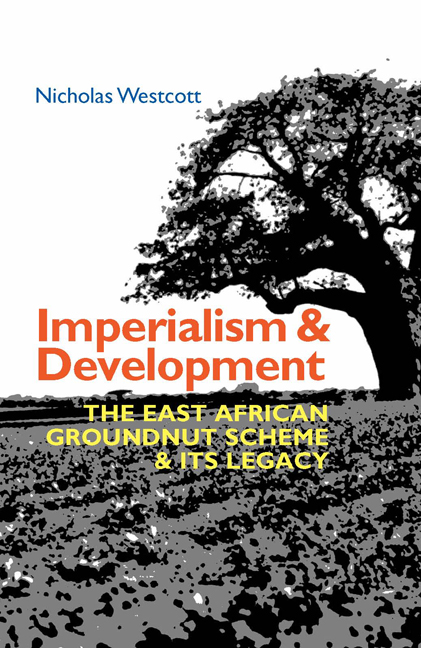Book contents
- Frontmatter
- Dedication
- Contents
- List of Illustrations
- List of Abbreviations
- Miscellaneous Frontmatter
- Preface and Acknowledgements
- Map
- Introduction
- 1 Austerity
- 2 A Scheme is Born
- 3 ‘The Poison of the Official Pen…’
- 4 The Groundnut Army
- 5 Beating about the Bush
- 6 The Overseas Food Corporation
- 7 1949: The Crisis
- 8 The Last Chance
- 9 A Sudden Death
- 10 Legacy and Lessons
- Bibliography
- Index
- Eastern African Studies
- Frontmatter
- Dedication
- Contents
- List of Illustrations
- List of Abbreviations
- Miscellaneous Frontmatter
- Preface and Acknowledgements
- Map
- Introduction
- 1 Austerity
- 2 A Scheme is Born
- 3 ‘The Poison of the Official Pen…’
- 4 The Groundnut Army
- 5 Beating about the Bush
- 6 The Overseas Food Corporation
- 7 1949: The Crisis
- 8 The Last Chance
- 9 A Sudden Death
- 10 Legacy and Lessons
- Bibliography
- Index
- Eastern African Studies
Summary
When the results of the 1945 British general election were announced on 26 July, the Labour Party was swept to its greatest electoral victory since its foundation. Though a surprise to the new Prime Minister, Clement Attlee, the victory reflected a deep-seated desire for change, a determination not to return to the pre-war world of aristocracy and depression. In the aftermath of victory, people had hope for the future. It was for the Labour Government to deliver on those hopes.
They had a thumping majority to do it. With 393 MPs against 210 Tories, 12 Liberals and two Communists (their high tide in British politics, and with their own part to play in this story), Labour had an overall majority of 147. On the Labour benches were veteran leaders, including Attlee and Bevin who had served in senior roles in the wartime coalition government, and party stalwarts such as Hugh Dalton, Stafford Cripps and Sir Ben Smith. But alongside them was a new generation of MPs – 200 novices in all – including Hugh Gaitskell, Harold Wilson, John Strachey and J.P.W. ‘Bill’ Mallalieu. Over the next six years, all of these people were to play a part, witting or unwitting, in the story of the Groundnut Scheme.
The challenges facing the incoming government were enormous. For most people at the time, after the brief euphoria of the victory celebrations and relief that the struggles of the previous six years were over, life was still pretty grim. Muriel Spark gave a graphic description of London at this time:
The streets of the cities were lined with buildings in bad repair or no repair at all, bomb-sites piled with stony rubble, houses like giant teeth in which decay had been drilled out, leaving only the cavity. Some bomb-ripped buildings looked like the ruins of ancient castles until, at closer view, the wallpapers of various quite normal rooms would be visible, room above room exposed, as on a stage, with one wall missing.
The contemporary Ealing comedy film, Passport to Pimlico (1949), set in this bombed out London landscape, revolves around a group of ingenious, down-to-earth local Londoners getting by and making do; black market spivs selling illicit supplies of rationed goods; bumbling, interfering men from the Ministry; and an unexpected find that brings momentary hope of a magical release from everyday austerity, before normal reality reimposes itself.
- Type
- Chapter
- Information
- Imperialism and DevelopmentThe East African Groundnut Scheme and its Legacy, pp. 25 - 36Publisher: Boydell & BrewerPrint publication year: 2020



